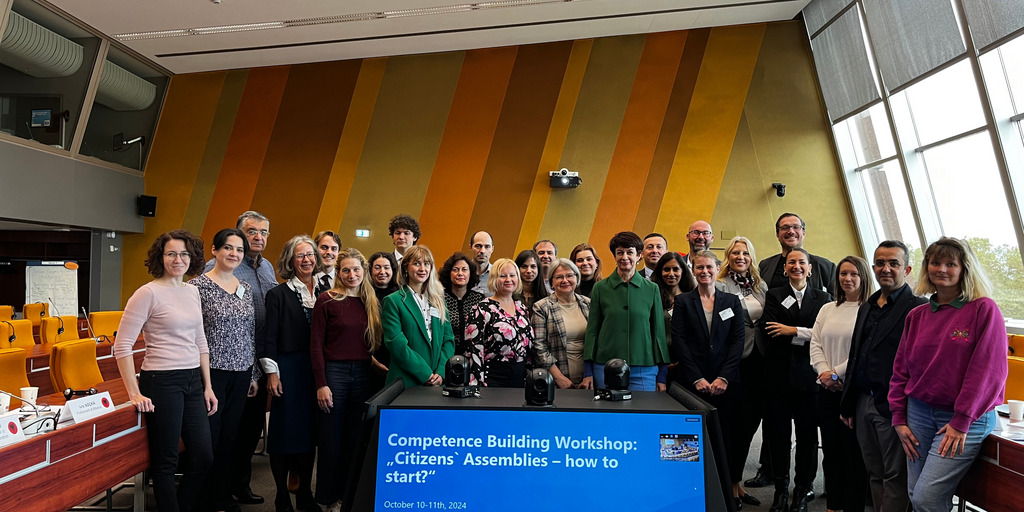The workshop in Strasbourg brought together actors from civil society and public administration on a national level. Over a span of two days, the participants broadened their knowledge of deliberative democracies and citizens’ assemblies together with experts. They developed ideas for the implementation of their own projects in the format of citizens’ assemblies.
Thereby, the participants learned about the benefits and challenges of citizens’ assemblies as well as quality principles for the effective and efficient implementation of citizens’ assemblies. This was supported by presentations from experts from several European countries. The workshop was designed interactively and focused on practical application. As such, they began with a country-specific project planning




